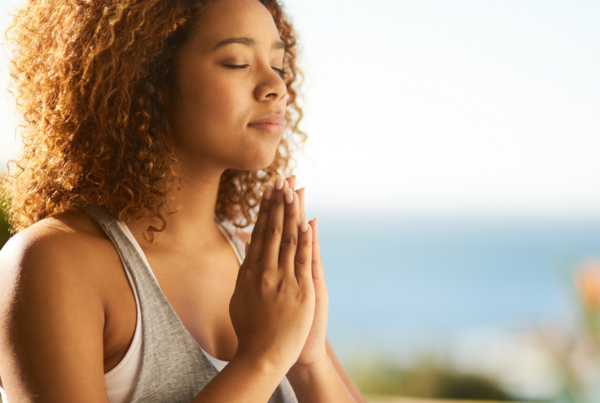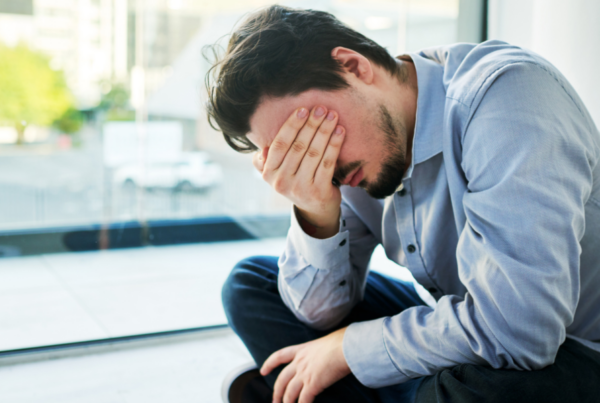It’s no secret that stress and anxiety are two of the most common issues facing people today. We know that they can negatively affect our health but to what degree? A 2017 study expressed, “…stress can exert various actions on the body ranging from alterations in homeostasis to life-threatening effects and death. In many cases, the pathophysiological complications of disease arise from stress and the subjects exposed to stress”.
While stress and anxiety are common, they are also serious. The good news is that herbal supplements and alternative therapies can be surprisingly effective in reducing these conditions. In this article, we’ll give you some of the most popular natural remedies for stress and anxiety by looking at herbal supplements and alternative therapies to improve your mood.
Herbal Supplements for Stress and Anxiety
Herbal supplements can be an effective natural remedy for stress and anxiety. Keep in mind that not every supplement will work for everyone, but finding natural and safe ways to remedy your stress and improve your mood can be incredibly beneficial. And many supplements carry less risk than traditional synthetic drugs. Here are five great herbal supplements for stress and anxiety with a low risk factor, including links to the science behind them:
Kava (Piper Methysticum)
Kava has been used as a natural remedy for anxiety and stress for centuries. It is said to reduce stress and improve mood by increasing the levels of GABA in your brain. **Kava is not toxic to our livers, as previously thought. Scientific studies have debunked this numerous times.
Valerian Root (Valeriana Officinalis)
Valerian root is often taken in supplement form to help reduce stress and anxiety. It has been shown to be useful as a remedy for insomnia due to its sedative and calming effects. Since at least the time of ancient Greece and Rome, the root of this flowering plant has been used as a medicinal herb.
Ashwagandha (Withania Somnifera)
This herb has been used for centuries in Ayurvedic medicine to treat stress and anxiety. Ashwagandha has sufficient evidence behind its stress-relieving properties. **Be sure to do some research, as there are different forms/brands of Ashwagandha, and some are better than others.
Chamomile (Matricaria Recutita)
According to Merriam-Webster: “the dried flower heads of chamomile that are often used in making tea and that yield an essential oil possessing medicinal properties.” Chamomile has been used since the days of Ancient Egypt for its healing properties. It’s known for its calming effects and can help to reduce stress and anxiety. Many new studies are emerging on the efficacy of chamomile for depression as well.
Passion Flower (Passiflora Incarnata)
Passion Flower is a natural sedative that can help reduce stress. It is a climbing vine native to the Americas. It can be brewed into tea or taken as a dry supplement. There is evidence to show that Passion Flower helps relieve stress and anxiety due to its GABA activity.
Remember that your mental well-being is also directly related to your cognition and memory. Things like brain-frog and the inability to remember things can cause significant stress. There are many nootropic supplements that are good for your brain. Check out our article on nootropic supplements and how they can help.
Alternative Therapies for Stress and Anxiety
While herbal supplements are fantastic for stress, anxiety, and mood, alternative therapies can also be beneficial. From the Buddhist practice of mindfulness to painting a beautiful landscape, here are some natural and therapeutic approaches you can try for better health and well-being:
Mindfulness techniques – Mindfulness can help people to step back from the chaos of everyday life and focus on the present moment. Mindfulness can improve people’s ability to cope with daily stressors and can be a helpful tool in managing stress and anxiety.
Yoga and meditation – Yoga and meditation can both reduce stress levels and improve focus. Yoga can be an excellent form of relaxation. Deep breathing and stretching can help reduce tension in the mind and body. Meditation involves focusing your attention on a particular object, thought, or activity to achieve a calm and clear state of mind.
Tai Chi – This ancient Chinese martial art combines physical and mental exercise. It is a martial art involving slow, gentle movements that promote relaxation and balance. Tai Chi is believed to reduce stress and improve mental well-being. A 2023 science review concluded, “Tai Chi interventions have shown improvements in mental and physical well-being as evidenced by reductions in depression and anxiety and improved QOL.”
Art therapy – There is a wealth of scientific literature showing the connection between art and good mental health. Art therapy involves creative activities, such as painting and drawing. It can help you express and process emotions that cause stress or pain. This, in turn, can help manage stress and anxiety.
Aromatherapy: The use of essential oils has been for thousands of years around the world. Aromatherapy can help relax the mind and reduce stress. You can use a diffuser, apply the oil to your skin, or even add a few drops to a bath.
Acupuncture: This ancient Chinese practice involves inserting thin needles into specific points on the body to alleviate pain and promote relaxation. And according to ample scientific evidence, acupuncture is effective for mood and memory as well.
Massage therapy: A massage can help reduce muscle tension and promote relaxation, reducing stress and boosting mood.
Music therapy: Listening to calming music can help reduce stress and promote relaxation. Take it a step further and learn to play an instrument or sing to engage in active music therapy. In fact, “music therapy is consistently associated with a reduction in anxiety and stress of critically ill patients.” according to a 2019 study.
Nature therapy: As simple as it sounds, spending time in nature can help reduce stress and promote relaxation. This can include going for a walk or sitting by a river. For an extra nature boost, put your hands or feet in the dirt. For real! Studies have shown soil to contain good bacteria that act in a similar way to antidepressants.
Breathing exercises: Deep breathing exercises, such as belly breathing or alternate nostril breathing, can help reduce stress and promote relaxation. You may also find that breathing exercises are often found inside other remedies, including yoga, meditation, and tai chi.
Closing Thoughts
Remember that although natural remedies may help, they should only be used to replace conventional medicine with approval from your healthcare provider. Some herbal supplements can interfere with the effectiveness of traditional pharmaceuticals. So again, always consult your doctor first to ensure the remedies you are considering are safe and effective.
By making a few changes to your diet and lifestyle and exploring natural remedies such as herbal supplements and alternative therapies, you can naturally improve your mood and reduce stress and anxiety.
**FDA Disclaimer – These statements have not been evaluated by the Food and Drug Administration. This product is not intended to diagnose, treat, cure, or prevent any disease.











